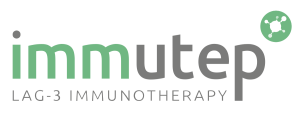
Posted: 1 August 2023
Immutep Limited (ASX: IMM; NASDAQ: IMMP) (“Immutep” or “the Company”), a clinical-stage biotechnology company developing novel LAG-3 immunotherapies for cancer and autoimmune disease, today announces the first patient has been enrolled and safely dosed in EFTISARC-NEO, the Phase II investigator-initiated trial of eftilagimod alpha (efti), a soluble LAG-3 protein and MHC Class II agonist, in combination with radiotherapy and the anti-PD-1 therapy KEYTRUDA® (pembrolizumab) for patients with soft tissue sarcoma. This chemo-free trial is the first to evaluate efti in a neoadjuvant setting.
Soft tissue sarcoma (STS), an orphan disease, represents a high unmet medical need with a poor prognosis. The incidence of STS varies in different regions, with approximately 23,400 cases annually and a crude incidence of 4.7 per 100,000 in Europe, according to the RARECARE project. In the United States, the number of new cases is estimated to be 13,400 annually with 5,140 deaths, according to the American Cancer Society.
The open-label EFTISARC-NEO Phase II study, which will treat up to 40 patients, is being conducted by the Maria Skłodowska-Curie National Research Institute of Oncology (MSCNRIO) and is primarily funded with an approved grant from the Polish government awarded by the Polish Medical Research Agency program. The trial’s Principal Investigators are Dr. Katarzyna Kozak, M.D., Ph.D., and Paweł Sobczuk, M.D., Ph.D., medical oncologists at the Department of Soft Tissue/Bone Sarcoma and Melanoma at MSCNRIO.
Dr. Paweł Sobczuk stated: “Soft tissue sarcoma is a rare, aggressive disease in high need of new therapeutic approaches, and we are pleased to begin treating patients with this novel IO-IO-radiotherapy combination and look forward to evaluating the potential synergistic effects of this chemo-free therapy. In particular, efti’s sustained activation of antigen-presenting cells, leading to proliferation of activated CD8+ T cells and elevated interferon-gamma levels, may transform the immunosuppressed tumour microenvironment of soft tissue sarcomas into one that enables immune checkpoint inhibitors like pembrolizumab to exert their anti-cancer effect. Additionally, we see synergies between efti and radiotherapy to arm, activate, and proliferate cytotoxic T cells with radiotherapy-induced cancer antigens to target this difficult-to-treat tumour.”
Immutep CSO, Frédéric Triebel, M.D., Ph.D, said: “We are pleased to see this trial, led by the expert team at the Maria Skłodowska-Curie National Research Institute, begin to enrol and dose patients. EFTISARC-NEO represents the first time efti will be evaluated in the neoadjuvant, non-metastatic cancer setting where patients will receive efti much earlier on in their cancer journey. Also, the neoadjuvant setting gives us the opportunity to assess in the surgical specimen the changes in the tumour microenvironment induced by efti. New information arising from this innovative trial may further broaden the future clinical development of efti and, in the end, bring even greater benefit to patients.”



